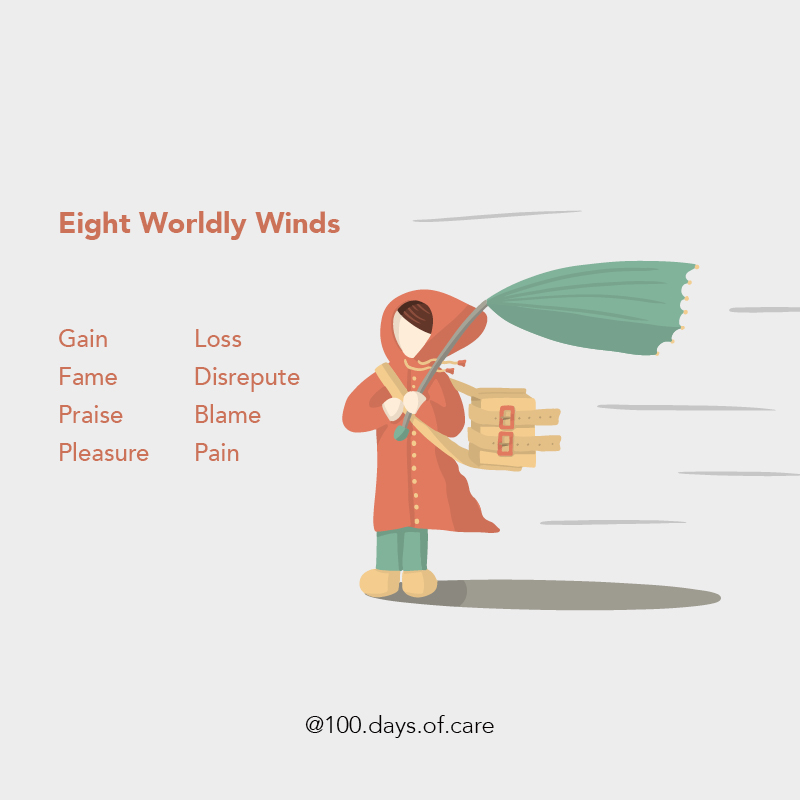Equanimity, in the context of Buddhist philosophy, refers to a state of mental balance and stability. It is often described as an even-mindedness or impartiality that remains steady and unaffected by the ups and downs of life.
We cultivate equanimity by maintaining sensitivity, openness and presence in the face of changing circumstances.
The “eight worldly winds” represent the ups and downs we all face. The direction of our life takes is determined by our reactivity to these experiences:
Gain and Loss: Acquiring what we desire versus experiencing the loss of things we cherish.
Fame and Disrepute: Receiving praise and recognition and having a good reputation versus being criticized and having a bad reputation.
Praise and Blame: Hearing compliments and getting approval versus being judged, blamed and meeting with the disapproval of others.
Pleasure and Pain: The experiences of pleasure and happiness versus enduring suffering and anguish.
Equanimity acts as a protective quality against the influence of these worldly winds. In the same way that a mountain remains unmoved by any amount of wind, as we cultivate equanimity we are increasingly unmoved by the eight worldly concerns.
In particular, equanimity has the qualities of non-attachment, non-identification, non-reactivity and acceptance.
As a practice of equanimity, we INVESTIGATE and OBSERVE the reactivity of our mind in relation to the winds.
Am I aware of my attachment to gain, good reputation, praise and pleasure? Can I see how loss, disrepute, blame and pain push me to act or re-act? What does it feel like to follow the impulse? What does it feel like to let it pass through?
TIP: Break your practice down by focusing on just one pair of winds at a time. For example, this week just notice how much you enjoy being praised and how much you resist being criticized.

